Uprising Movie Review: Perfect Film for Lovers of Historical Action Dramas
Cast: Gang Dong-won, Park Jeong-min, Cha Seung-won, Kim Shin-rock, Jin Sun-kyu, Jung Sung-il
Director: Kim Sang-man
Streaming Platform: Netflix
Filmyhype.com Ratings: 3.5/5 (three and a half stars)
Uprising is a Korean film, an original Netflix action drama. During the Joseon era, two friends from different social classes who grew up together, one a master and the other a servant, meet again as enemies after the war ends. Immediately earning a spot in the Top Ten of the most-viewed titles of the week. Now only word of mouth among users and the number of views recorded upon release will be able to determine how long it will be able to maintain. The film in question already had everything on paper to do well, starting with the great qualities inherent in the background and made available by the professionals involved in the project, including Park Chan-wook on the screenplay and Kim Sang-man in the director’s chair, the former a leading exponent and the latter a new promise of the generous and talent-rich breeding ground of the South Korean audiovisual industry. An industry with which the Big N has for years made a real iron pact that has brought a considerable quantity of cinematographic and serial products to the platform.
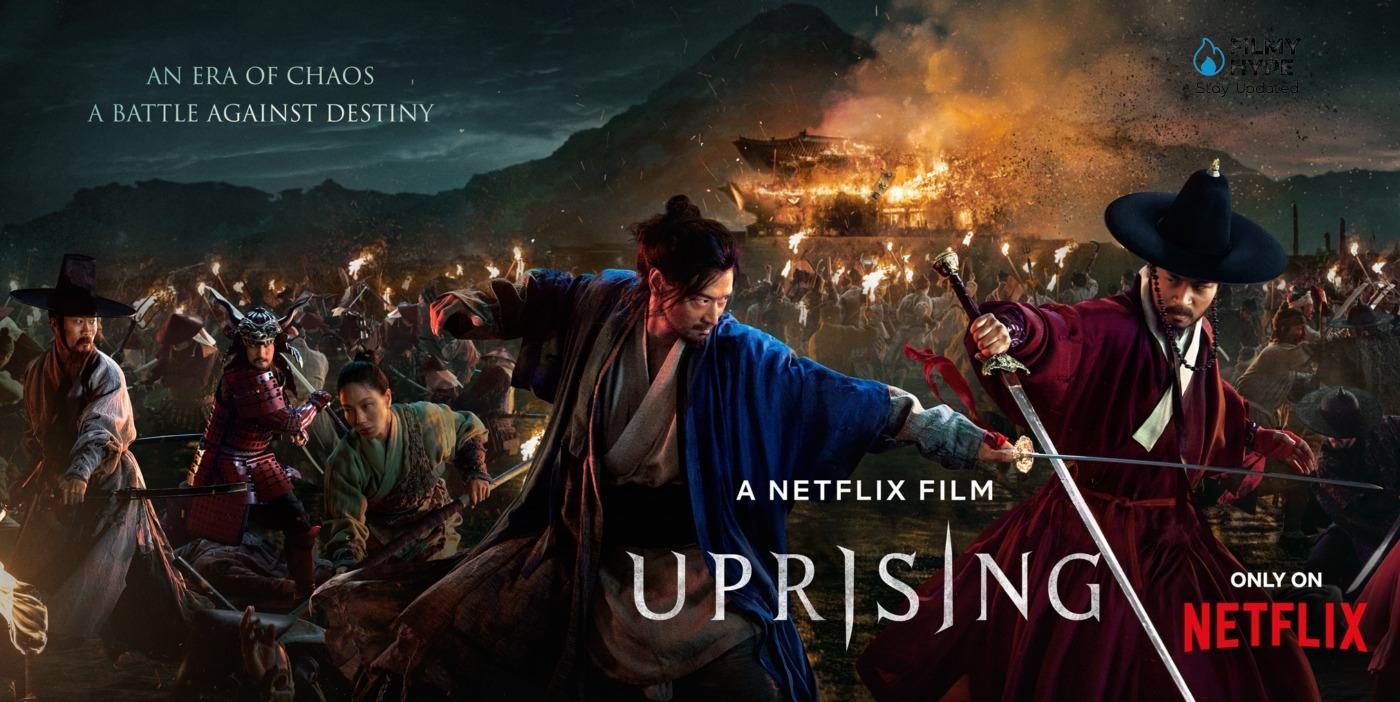
There was a lot of curiosity, not only because Uprising arrives in the period immediately after the shower of Emmys that saw Shogun set a new record in terms of number of statuettes won, but also because the co-writer is one of the greatest contemporary Korean directors, Park Chan-wook, author of the iconic Revenge Trilogy – and much more – who here entrusted the direction to his long-time collaborator Kim Sang-Man, who participated in the role of artistic director in some of his most celebrated cult films. And so in this historical drama set in South Korea during the Joseon dynasty, complete with the Japanese invasion and turmoil that raged in a country deeply shaken by social divisions, the viewer passionate about oriental epics will certainly have plenty to enjoy, in two hours of viewing equally divided between action and palace intrigue.
Uprising Movie Review: The Story Plot
A Korean film that traces some of the history of the Joseon period during the Japanese invasion, but adds its own story when the main character, a master and servant who grew up together, are separated. But then a misunderstanding occurs that causes the fate of the two to be polar opposites as a great general beside the placeless king and a rebel who tries to fight the Japanese soldiers to save the country. The story focuses on the era of class division, slaves, commoners, soldiers, nobles, and kings, starting from the main character, a grown-up slave who escaped and was captured. Then, it tells the story back to his childhood, what happened to him, when he had a young master, and he was a slave who was beaten instead if his master failed in swordsmanship. The story shows that the idea of oppression was very strong in this era. Slaves were responsible for everything for their masters. They had to be oppressed, betrayed, and not keep their promises all the time.
The story made the upper class extremely detestable, more than slaves in the West or other countries (which, if true, maybe the reason why Korea has had a problem with class discrimination up until now). The class discrimination in this story was so severe that the upper class was willing to die if a slave would save their life. The story uses this as an important point that causes the two best friends to break up, causing the master to start chasing his best friend while the country was in a bad state, while the slave became a soldier to fight the enemy. The story tries to build up the relationship between the two full of class drama before finding a way to resolve it, but it doesn’t do it well enough because it ends so easily with just one word, which should have been said before, not at the end of the story like this.
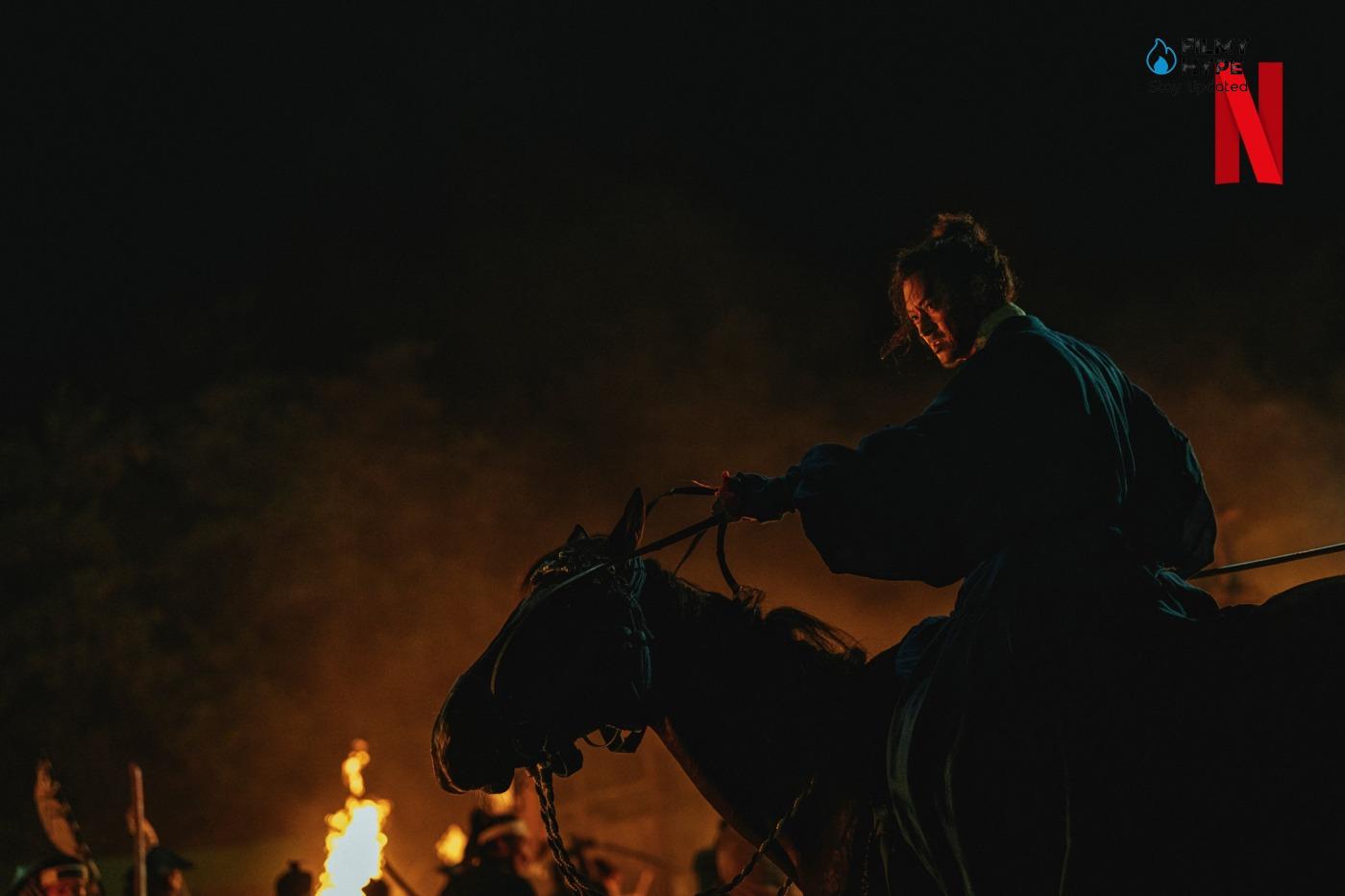
The film alternates between the roles of both of them as children and adults all the time. The story may seem confusing because it keeps cutting back to the past to tell how they got to this point and what they had to endure. The slave side is the hero, and the master side is the supporting character. Before there is a fight scene between the two of them alternating with fighting the Japanese soldiers, the Japanese role in this story is the big villain boss. When it is in Korean film, the script is written to be an even worse villain by emphasizing that this is the general who cut off the noses of Koreans and collected them as prizes to take back to the country. They also emphasize that this character has a role that is connected to the King of Joseon at that time. This makes the king a villain who lacks character depth. He only shows his evil side in a blunt way, which is the most despicable part of the story. But in the end, there is no punishment for this character because the film is still based on the story that this dynasty will collapse later.
Uprising Movie Review and Analysis
Park’s hand is firm in the writing phase, with that mix of violence and sarcasm that is well suited to a staging that is at times daring, which exploits the dynamism of a complex era, being able to trigger different parties involved, with a final duel further tangled up by a thick fog. At the same time, however, Kim Sang-Man’s direction is not as incisive, both in terms of the action dynamism and the dramatic emphasis, less (over)powerful than expected. Let’s be clear, those who already know what to expect from the promotional images or the trailer will hardly be disappointed, but Uprising does not have the same universal appeal as cornerstones of the genre in national cinema. Just think, above all, of the never-too-celebrated Masquerade (2012), which also plays on class differences but in a much more subtle and cutting way.
The two-odd hours of Uprising seem to wink at the streaming audience, with a quick succession of events and sudden changes of perspective aimed at keeping the pace very high, preventing you from stopping to reflect or to better contextualize the characters and their motivations, thus end up being pawns in a millimetric chess game. The staging can count on a well-spent budget, with a notable number of extras for the mass scenes and meticulous attention to costumes and settings, all accompanied by a soundtrack of order, aimed at emotionally inflaming the key sequences of this showdown with multiple contenders. Even though the non-invasive presence of special effects is of a good level and all things considered, the film offers solid themed entertainment, it was legitimate to expect something more given the names involved.
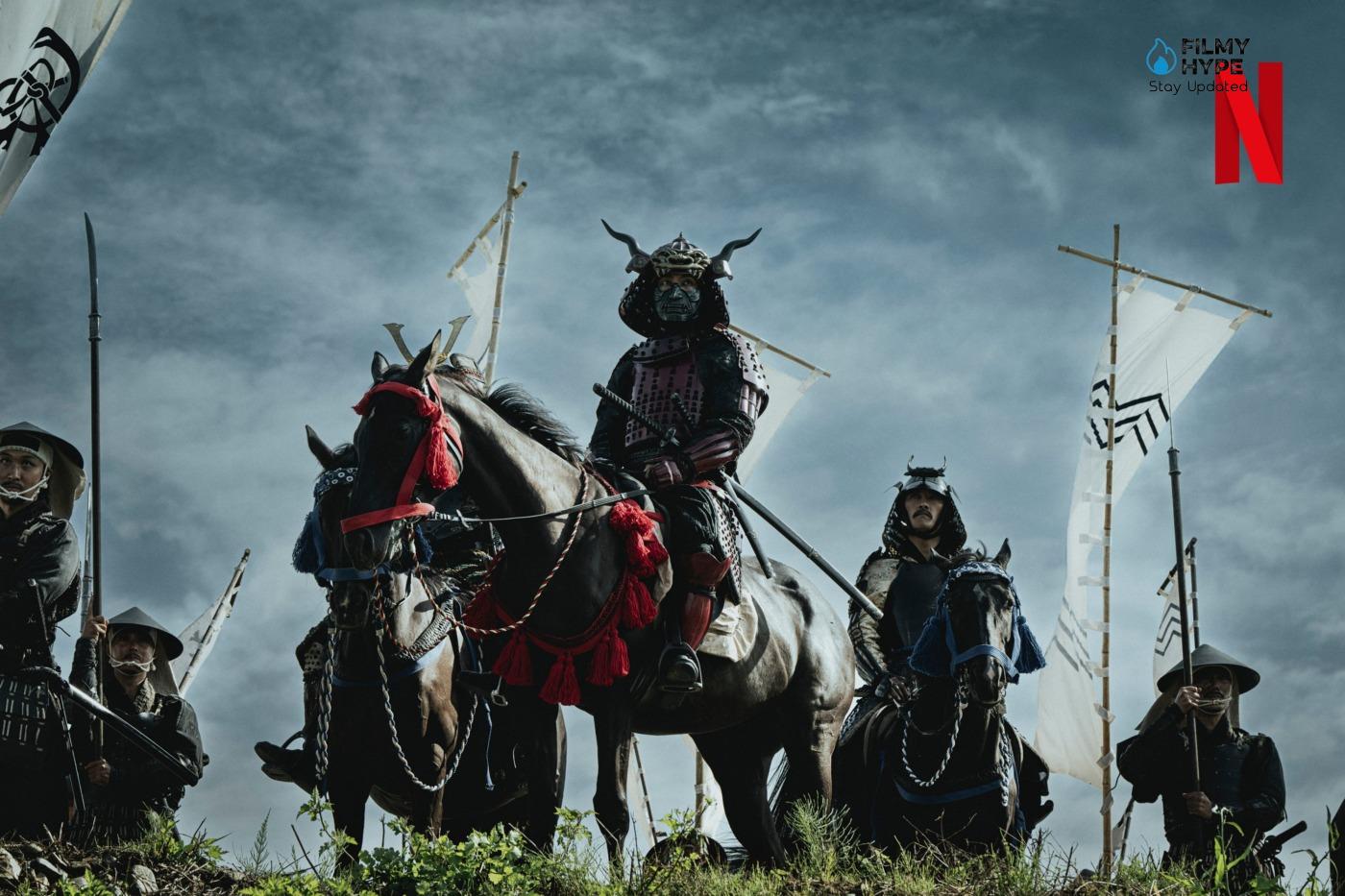
From Uprising, one should not expect anything different from what similar operations have already offered in the past. The writing relies on, draws from, and follows to the letter the dictates of the reference threads, namely those of historical drama that seamlessly intersect with those of oriental cloak and sword, in which martial choreography makes its voice heard, playing a fundamental role for the staging. Therefore, everything, it could not be otherwise, is narrated with the usual feverish tension and framed with an engaging rhythm dictated by the hyperbolic and visually impactful style of the Asian epic. The numerous action sequences scattered across the timeline to kinetically punctuate the story make spectacularity their calling card, continually raising the bar and the level of complexity. The showdown on the beach shrouded in fog between the two co-protagonists is in this sense the highest point reached after many peaks such as in the case of the fights on the cliff, in the forest (inevitable), and in the courtyard of the royal palace before it is razed to the ground.
Duels and battles abound and more than once you are dazzled by the aesthetic elegance not only of the gesture but also of the composition. The only shame is that some VFX do not live up to the situation, which due to the non-optimal rendering has weakened some scenes. Park Chan-wook in the screenplay and Kim Sang-man in the director’s chair are the additional “weapons” available to a film that mixes historical and private conflicts through the dictates of period drama and the hyperbolic aesthetics of Asian martial arts action. The fictional plot blends with real historical events that saw Korea and Japan face each other on the field during the bloody Seven-Year War. Power dynamics, unions, alliances, and betrayals are the essential ingredients of the recipe, but it is the choreographies scattered throughout the timeline that offer the user the most exciting and engaging moments. The only shame is for some unsuccessful VFX that weakens otherwise spectacular scenes on a martial level.
At first glance, Uprising may seem like a big-budget historical epic with jaw-dropping battles and the intent to reaffirm patriotic values, but it is a complex film that uses its characters to reflect on Korea’s social problems and the distribution of wealth. The screenplay, written by Shin Chul, Jahye Lee, Park Chan-wook, and Kim Sang-man himself, uses the backdrop of the troubled Joseon Dynasty, an era famous for its many social upheavals and attempted revolutions, to place the protagonists in a rigid and brutal system of power that subjugates people, strips them of their individuality and turns them into disposable pawns. Both Gang Dong-won (Broker) and Park Jeong-min (Decision to Leave) do a great job playing these two frenemies. On the one hand, Dong-won makes the most of his physicality during the action scenes, where he shows off his skills in swordplay, acrobatics, and hand-to-hand combat.
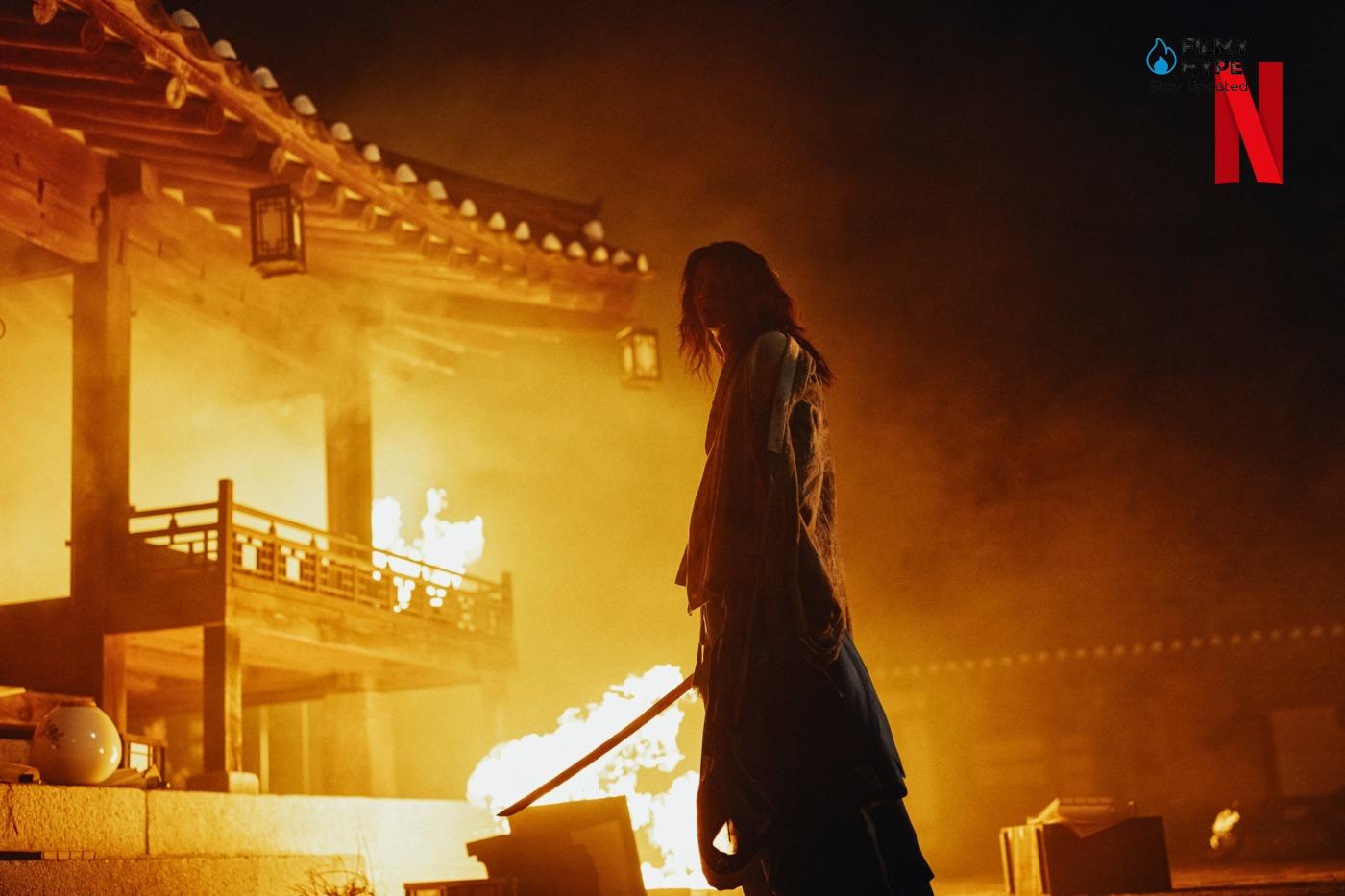
Jeong-min, on the other hand, carries the emotional weight of the film, and it is through his eyes that many of the changes in his character shine through, with the reddish colors of his costume becoming much darker as his crusade for revenge become darker. The two have great chemistry when they are together, conveying the long-standing friendship between the characters, and so when we see them fight against each other, the scenes are both painful and very emotional. If Uprising had focused a little more on the turmoil and the aftermath of the misinterpreted betrayal, it would probably have been a more compelling watch. However, the film goes to great lengths to establish the fallacies of the social fence in Joseon, following a narcissistic king blind to anything but his lofty idea of monarchy, along with the threat of constant clashes with the Japanese. At times, one gets the impression that the story pushes the main characters into the background, before suddenly remembering whose conflict it is.
Confined to their silos until the end – most of their story unfolds through flashbacks – their enmity never reaches its intended crescendo, instead disappearing into a sea of literal fog towards the climax. Although social inequality fuels the central dispute between two friends who have dared to bridge the gap, it feels like two separate stories running in parallel. With flashbacks to both protagonists’ childhoods, when Cheon-yeong taught Jong-Ryeo her mastery of the sword, the film has a fragmented structure and a somewhat derivative development that shows them at times on opposing sides but ultimately united beyond their profound class differences. What it lacks at times in subtlety, nuance, and psychological depth, it makes up for with intense battle scenes (there are a record number of severed heads and other limbs), captivating hand-to-hand combat choreography, and a few isolated, welcome bursts of humor.
The movie has a story that is easy to watch and is quite entertaining with a lot of action scenes. It is quite well done. But the bad thing is that the story is based on real history but makes the main character in the story very unrealistically skilled. For example, he has never been in a battle before but has the skill to kill an entire Japanese army by himself, to the point of being able to duel with a Japanese general equally. The story does not have any scenes of the main character training in combat skills from anywhere other than training with the master he grew up with. When the story makes the main character so exaggerated that he becomes a legend that is known throughout the country, it makes the time in the past when the main character was chased by slave hunters and was arrested and imprisoned immediately unreasonable.
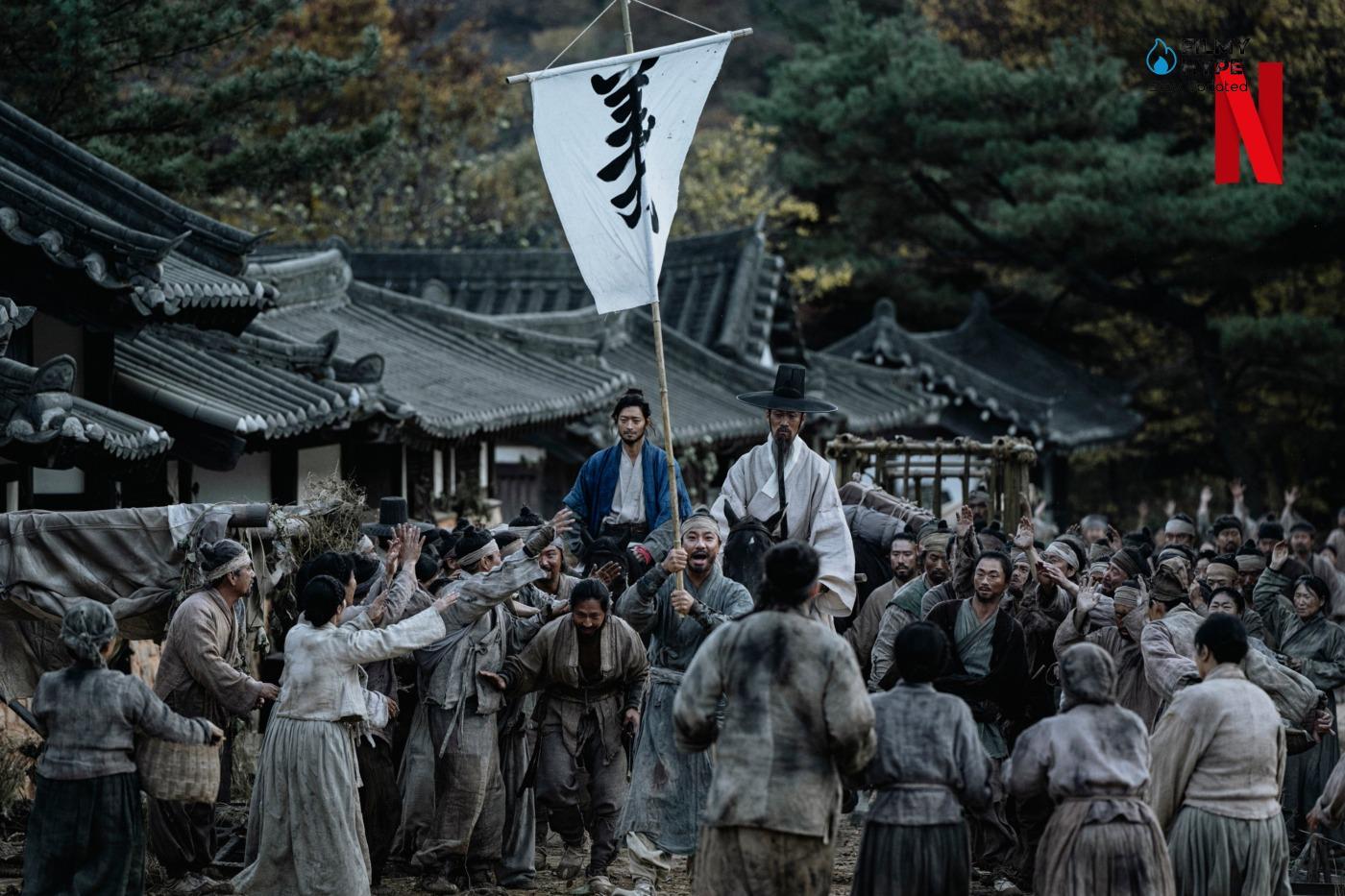
In addition, the story also tries to insert jokes with the main character’s army, which has villagers joining them and immediately become the best, such as the stone-throwing boy, the pork butcher, and the village girl. The story makes these people suddenly become so good that they can even fight Japanese soldiers in armor. The movie pushes these characters together with the main character until they become a gang of extremely skilled rogue soldiers, which seems to contradict the story of the era when the Japanese army heavily invaded and the main issue of class is the main theme of the story. The production work of the story looks good in the style of Korean works of this type, but the actual scenes of the story are not very large-scale. There are only small-scale battles. When Japan invaded Korea, there was only one scene.
Uprising Movie Review: The Last Words
If you loved Shogun, Uprising is the film for you while you wait for the second season of the series: sumptuous in its staging, vengeful as only Park Chan-wook can be, it could surprise fans of historical epics in their fullest sense. First friends and then enemies, in a historical context where wealth and poverty were only the result of luck and the difference between slavery and nobility could mean life or death. The two protagonists of Uprising find themselves on opposite sides in a country torn apart by conflict, first against the Japanese invader and then the bloody theater of those rebellions against a cynical and unjust nobility. An enjoyable costume action-drama that travels at a frantic pace and boasts the prestigious signature of Park Chan-wook as co-screenwriter: if he had directed the film himself, the result would probably have been on a much higher level, but one can’t complain anyway.






